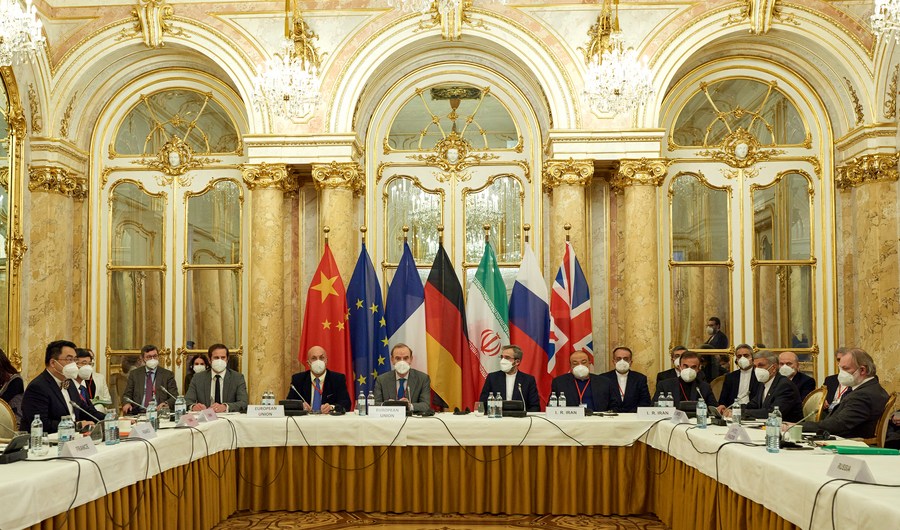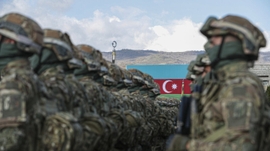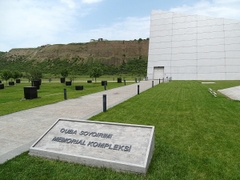An advisor to the Iranian negotiating team in Vienna talks has said that there are several indications that the US has accepted Iran's conditions to reach an agreement.
"There are now even stronger indications that the Ukrainian crisis has forced West to retreat in Vienna talks as several EU states have started demanding sanctioned Iran for crude even before end of talks," Mostafa Khoshcheshm, wrote in a tweet on March 3.
He added that even one unnamed Western country had asked Iran to provide insurance coverage for cargoes to bypass sanctions.
In a Tweet, Khoshcheshm wrote that "a milestone now seems on the horizon for this weekend".
The eighth round of Vienna talks aimed at reviving the Joint Comprehensive Plan of Action (JCPOA), mainly known as the 2015 nuclear deal, resumed in the Austrian capital of Vienna on February 8, between negotiating teams representing Iran and the P4+1 (the UK, France, Russia, China plus Germany) after an 11-day break for consultations in their countries. The US is indirectly involved in the talks. The JCPOA sets restrictions on Iran’s nuclear program in exchange for sanctions relief.
If Tehran resumes compliance under the deal, the Biden administration has sought to re-enter the JCPOA, which President Donald Trump unilaterally exited in May 2018. However, Iran insists that it will only do so if the United States makes the first move and lifts all sanctions. Following the US withdrawal from the JCPOA and the reimposition of sanctions on Iran, Tehran scaled back its commitments and expanded its nuclear program.
In a phone conversation with his Chinese counterpart, Wang Yi, on March 2, Iran's Foreign Minister Hossein Amir-Abdollahian said that his country has so far introduced "numerous initiatives to resolve the remaining differences" in the course of the talks.
Amir-Abdollahian added that an agreement on reviving the nuclear deal requires the Western parties to pursue a "realistic" approach and make "political decisions".
For his part, the Chinese foreign minister said that Beijing recognizes and backs the Iranian side's "logical demands".
Ali Shamkhani, the secretary of the Supreme National Security Council (SNSC), wrote in a Tweet on 3 March that "if the Vienna talks do not result in a good agreement, the current US government will surely feel defeated in the near future for failing to make timely use of this diplomatic opportunity".
Meanwhile, an unnamed source close to the Iranian negotiating team told the Iranian Fars news agency that "the French are creating obstacles in resolving the remaining issues between Iran and the International Atomic Energy Agency (IAEA) on Safeguards."
The source added that the French are pursuing a totally political approach to the talks to reach a nuclear deal.
The Director-general of the IAEA, Rafael Grossi is set to visit Tehran to meet Iran's atomic energy chief Mohammad Eslami on March 5.
In his speech on March 2, Grossi expressed hope that progress can be made on the remaining safeguards issues with Iran, stressing that the possibility of his trip to Tehran shows that "anything is possible".







 Azerbaijan’s historical biographical film “Taghiyev” has won the Best Feature Film award at the Dehancer Colorist Awards 2024. The film, which chro...
Azerbaijan’s historical biographical film “Taghiyev” has won the Best Feature Film award at the Dehancer Colorist Awards 2024. The film, which chro...
 Azerbaijan has been recognized as one of the safest countries in the world, ranking 90th among 163 countries on the Global Terrorism Index 2025 (GTI).
Azerbaijan has been recognized as one of the safest countries in the world, ranking 90th among 163 countries on the Global Terrorism Index 2025 (GTI).
 The Azerbaijani Defense Ministry has reported ongoing shelling of its army positions by Armenian forces since last week.
The Azerbaijani Defense Ministry has reported ongoing shelling of its army positions by Armenian forces since last week.
 Nine years have passed since a bloody escalation of the Armenia-Azerbaijan conflict that was later dubbed the April War or Four Day War.
Nine years have passed since a bloody escalation of the Armenia-Azerbaijan conflict that was later dubbed the April War or Four Day War.
 Azerbaijanis around the world are commemorating March 31 as the Day of Genocide of Azerbaijanis, which took place 107 years ago and is considered o...
Azerbaijanis around the world are commemorating March 31 as the Day of Genocide of Azerbaijanis, which took place 107 years ago and is considered o...



